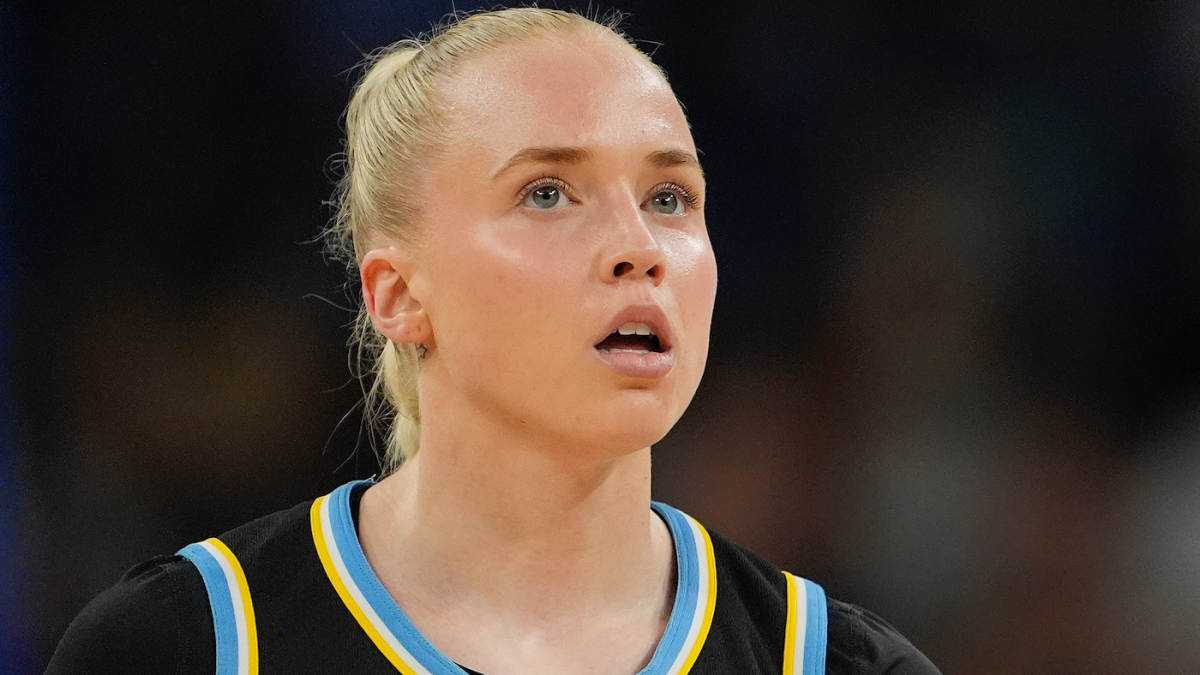The Storm Surrounding Angel McCoughtry
The WNBA is currently in the eye of a storm, with Angel McCoughtry at its center. Her controversial commentary and determined comeback pursuit have sparked intense debates and media attention, revealing deeper issues within the league. This situation is a complex interplay of talent, popularity, player safety, and the evolving dynamics of professional sports in the digital age.
The Spark: A Critique That Ignited a Fire
The controversy began with McCoughtry’s public questioning of Hailey Van Lith’s legitimacy in the WNBA. On the “Let Her Shoot” podcast, McCoughtry suggested that Van Lith’s place on the Chicago Sky was more due to her online popularity than her basketball skills. This critique, though harsh, touched on a sensitive topic: the influence of social media on athlete recognition. McCoughtry’s argument implied a concern that marketability might be overshadowing merit in roster decisions. However, her delivery was seen as unnecessarily critical and damaging, leading to immediate backlash.
McCoughtry’s subsequent clarifications attempted to contextualize her remarks, but the initial impression was hard to shake. This incident highlighted the delicate balance between constructive criticism and harmful commentary in the public sphere. It also raised questions about the role of social media in shaping perceptions of athletes and their value.
From Critic to Protector: The Caitlin Clark Factor
The narrative shifted dramatically when McCoughtry offered to act as an “enforcer” for Indiana Fever rookie Caitlin Clark. This offer came after an incident where Chicago Sky guard Chennedy Carter aggressively body-checked Clark. McCoughtry’s declaration was a response to the perceived lack of protection for Clark, the league’s highly publicized No. 1 draft pick.
This pivot from criticizing a rookie to offering protection to another showcased McCoughtry’s complex motivations. She framed her desire to return to the WNBA as a mission to safeguard young players from overly physical play. However, this offer wasn’t universally praised. Some suggested that acting as Clark’s protector could create an unhealthy dynamic. This debate underscored the broader question of how to balance competitive intensity with player safety.
A Comeback Fueled by Controversy and Determination
Underlying McCoughtry’s vocal opinions and protective instincts is a clear desire to return to the WNBA. She has stated she “has never felt better” and is actively preparing for a potential comeback. Her recent association with the Minnesota Lynx, using their facilities for recovery, indicates a serious intent to rejoin the league.
McCoughtry’s last significant WNBA stint was in 2022, but injuries have hampered her ability to consistently play. Despite these setbacks, she remains determined to prove she can still contribute. The controversy surrounding her comments has, ironically, amplified her visibility and reignited discussion about her potential value to a team.
Her comeback attempt isn’t solely about personal ambition. McCoughtry believes she can still impact the game, both on and off the court. She’s a filmmaker and actively engages with the WNBA community, demonstrating a commitment to the league’s growth and evolution.
The Wider Implications: Toxicity, Talent, and the Evolving WNBA
The entire episode has sparked a wider conversation about the culture within the WNBA. Social media reactions have been intense, with some fans labeling the league as “more toxic than the NBA” in response to McCoughtry’s comments. This perception, whether accurate or exaggerated, highlights the need for constructive dialogue about player interactions, media scrutiny, and the pressures faced by athletes in a highly competitive environment.
The situation also raises fundamental questions about how talent is evaluated and rewarded in professional sports. McCoughtry’s initial critique of Van Lith touched upon the growing influence of social media and the potential for popularity to trump pure skill. While marketability is important, the core principle of meritocracy remains crucial for maintaining the integrity of the game.
The Crossroads: Balancing Talent, Experience, and Safety
The Angel McCoughtry saga isn’t just about one player’s opinions or comeback attempt. It’s a microcosm of the WNBA’s current state—a league brimming with talent, navigating increased visibility, and grappling with questions of fairness and protection. The league stands at a crossroads, needing to balance the excitement of rising stars like Caitlin Clark with the respect and experience of veterans like McCoughtry.
The way the WNBA addresses these challenges will ultimately define its future and solidify its position as a premier destination for women’s basketball. The league must foster an environment that values both emerging talent and seasoned experience, ensuring that all players feel protected and respected. This balance is crucial for maintaining the league’s integrity and continuing its growth in the modern era.
Conclusion: A Call for Constructive Dialogue
The storm surrounding Angel McCoughtry has brought to light important issues within the WNBA. From the role of social media in athlete recognition to the balance between competitive intensity and player safety, these conversations are essential for the league’s evolution. As the WNBA navigates these challenges, it must prioritize constructive dialogue and a commitment to fairness and respect.
The future of the WNBA depends on its ability to adapt and grow, embracing both its rising stars and its veteran players. By addressing the underlying tensions and fostering a supportive environment, the league can continue to thrive and solidify its place as a premier destination for women’s basketball. The storm may have brought controversy, but it has also brought an opportunity for growth and reflection, paving the way for a stronger, more resilient WNBA.











